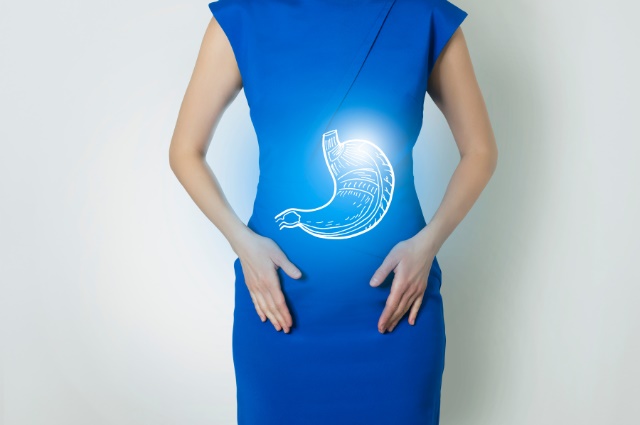
Getting bypass surgery to lose the weight that causes problems is a brave step taken to improve one’s health and quality of life.
You will feel much better after the surgery and be able to return to a normal routine.
However, you must also be aware of a few issues that may make you more vulnerable and take measures to prevent them.
We have put together this list of the best health protection strategies for bariatric patients.
What to Expect after Weight Loss Surgery

All in all, things should feel – and genuinely be – greatly improved for you. The vast majority of bariatric patients report not only major weight loss but also a great improvement in their quality of life.
Only less than 10% of them have any minor complications post-surgery, and less than 5% experience any serious complications.
Weight loss surgery doesn’t just take away the extra weight, but completely changes the way your body handles nutrients. After you get back home from the hospital, you may be amazed at how fast you shed the pounds and how easy it is to become more active.
Still, some common issues occur which can take a toll on your health. Some of these can be avoided and some of them can’t and, as such, must be managed and contained for a diminished impact.
You will need to monitor your lifestyle much more than a person who hasn’t had this surgery because your body will not be able to take care of itself as well for a while.
Certain nutrients are harder to absorb the natural way and you even risk malnutrition in the long run.
Let’s take a closer look at these risks and how to handle them.
The Main Risks of a Bariatric Patient and How to Protect Yourself Against Them

a) Blood clots in the lungs
This particular health risk is more pronounced in the first few weeks immediately after the weight loss surgery but never goes away completely.
It occurs rarely, but it’s still a risk and it can be quite dangerous. The usual measures to prevent it are blood-thinning drugs (in the time around the surgery) and keeping an active lifestyle (in the longer run post-surgery).
Your doctors will prevent this at first, but afterward, you must take responsibility for your well-being.
If anything, this only highlights the need for you to commit to an active lifestyle after the recovery period. Doctors will also stress this need, and walk you through the risks of leading a sedentary life after weight loss surgery.
Bariatric patients can risk putting on the unhealthy weight right back if they’re not careful.
The danger is that this time their digestive system won’t be able to withstand dieting as easily as before, and another surgery to solve the problem is out of the question.
All the more reason to stay active and develop a long-term workout routine.
b) Bleeding in your stool
Bleeding in your stools can occur up to a month from the surgery, and can be the symptom of a dangerous rupture or internal bleeding.
Contact your doctor immediately if you notice anything suspicious (red or black colored patches).
As for preventing this health risk, as a bariatric patient, you must do two things:
- Monitor bowel movements to be aware if there is any bleeding;
- Try to move around the house a little bit each day, even immediately after the surgery. Don’t start aggressively working out, of course, but avoid lying in bed for most of the day. Only a well-balanced movement profile can get your system back to normal gently, preventing ruptures but bringing all systems online.
c) Malnutrition and iron deficiency
Since your digestive system will be less receptive to certain types of nutrients from now on, you will need to take some supplements to counteract that.
These are the main vitamins and minerals that you will not be able to absorb so well:
- Iron
- Folate (which also helps promote iron absorption)
- Calcium
- Vitamin D (which, in turn, helps promote calcium absorption)
- Vitamin B12.
To avoid getting anemia (iron deficiency) or even malnutrition due to the reduced absorption rate of your digestive system, you should take some extra measures.
Supplements are an ideal way to give your body what it lacks, but the healthiest thing to do is not rely solely on them.
You need to also actively strive to bring in these nutrients for your diet. If anything, it will only help you be more aware of your dietary choices and maintain a healthier lifestyle.
d) Gallstones
Gallstones, unfortunately, are a major risk for bariatric patients. Up to 50% of all bariatric patients tend to develop them, and sometimes further surgery is required for their removal, in 15 to 25% percent of all cases.
The symptoms of gallstones are nausea, abdominal pain and even vomiting, in more severe cases. While there is no surefire way of avoiding developing these gallstones after surgery, there are some measures you can take to keep the situation under control.
The last thing you want is to be caught unaware by a major gallstone crisis. Therefore, you should go to frequent check-ups post-surgery and get scans often enough to know what’s coming.
This way, if your gallstones are getting out of control, at least you and your doctor will know about it.
e) Dumping syndrome
This is a name for a condition that is much lighter than it sounds. It occurs when bariatric patients ingest large quantities of sugar after the surgery (like the kind of intake you can get from sugary drinks, sodas, or very concentrated sweets).
The symptoms of a dumping syndrome reaction include abdominal pain, vomiting, and weakness. While highly uncomfortable, this is not a serious or dangerous condition.
The bright side is that you won’t be able to consume unhealthy drinks anymore, which should make sticking to a more wholesome diet easier.
Wrapping it up
These were the main health protection strategies bariatric patients should stick to.
In more general terms, if you watch your diet and keep an active lifestyle after the surgery, you are doing the best you can to protect your health.
Don’t forget to also check in regularly with your physician so that they can closely monitor your condition, too.
About The Author:
Barry Clarke is a fitness instructor with a degree in Human Nutrition. After work is done, he finds happiness and relaxation in writing. He is an editor at ProtectYourHealth, a blog that aims to be an important resource on topics like diets and workouts.


![[Art of Defense] Top Mixed Martial Arts to Practice for Personal Protection Art of Defense](https://www.safeandhealthylife.com/wp-content/uploads/2023/02/Art-of-Defense-150x150.jpg)

